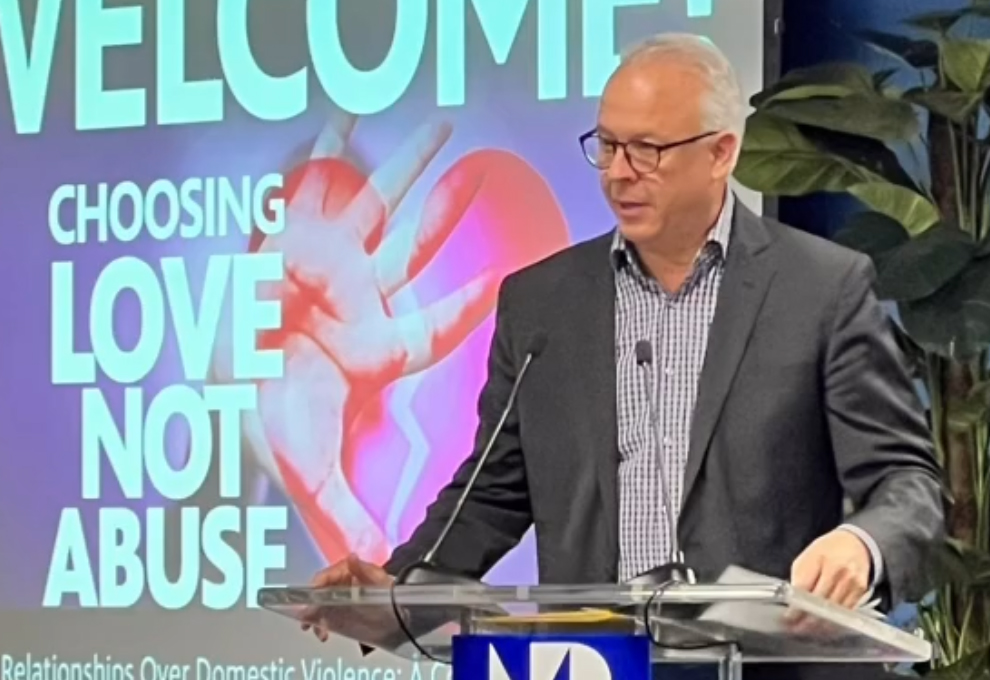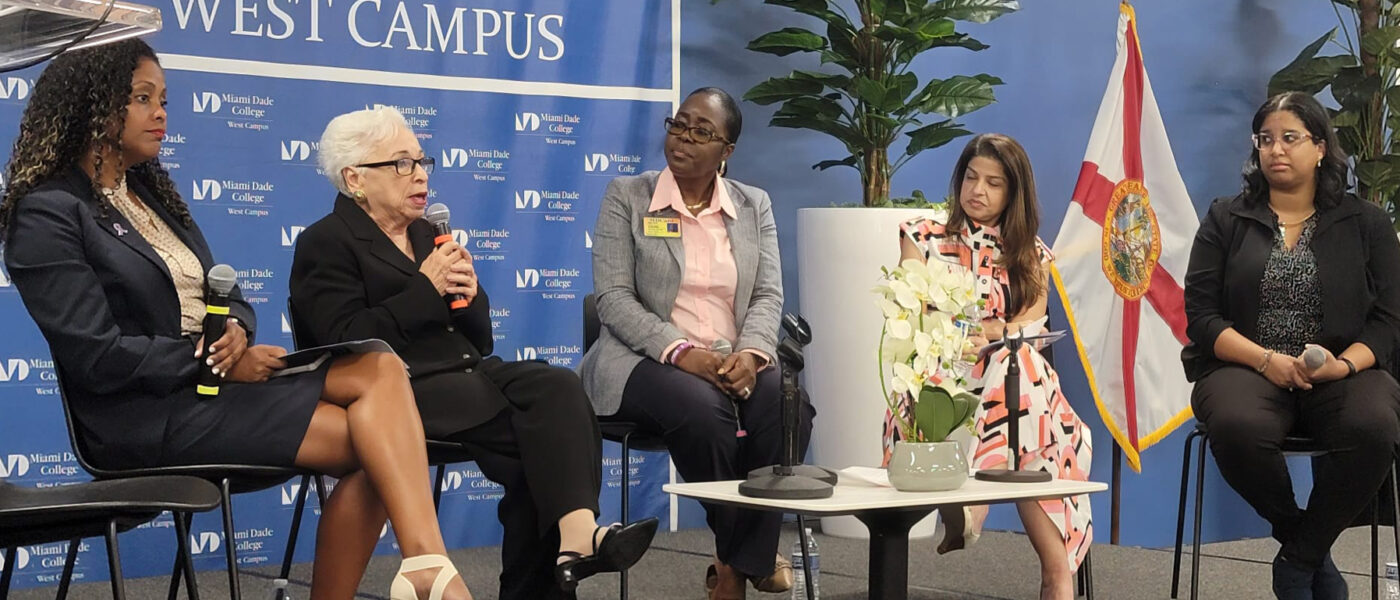Forum on Domestic Violence: “Choosing Love Not Abuse”
By: Diana Bello Aristizábal
For every three women, one is believed to experience domestic violence in their lifetime, while one in every four men would. These numbers were revealed in the forum ‘Choosing Love Not Abuse: Healthy Relationships Over Domestic Violence’ held on October at Miami Dade College West Campus to raise awareness in the community regarding an issue that many times it’s silent despite the emotional and physical scars it leaves.
 Sponsored by Doral Councilman Oscar Puig-Corve, the forum brought together five panelists and a keynote speaker who shared their knowledge on a problem that is not foreign to state residents since nearly 40% of Florida women and 30% of Florida men experienced intimate partner dating violence, intimate partner sexual violence and intimate partner stalking in their lifetimes, according to the National Coalition Against Domestic Violence.
Sponsored by Doral Councilman Oscar Puig-Corve, the forum brought together five panelists and a keynote speaker who shared their knowledge on a problem that is not foreign to state residents since nearly 40% of Florida women and 30% of Florida men experienced intimate partner dating violence, intimate partner sexual violence and intimate partner stalking in their lifetimes, according to the National Coalition Against Domestic Violence.
Invited panelists were Miami-Dade State Attorney’s Office member Yaneth Baez; domestic violence survivor, Barbara Romani; Director of Interpersonal Violence Prevention for Miami Dade College, Roselaine Monestime; Licensed Mental Health Counselor and Founder of Buxani Counseling Care Dr. Rachna Buxani-Mirpuri, and Victim of Crime Advocacy Specialist at Miami-Dade County Coordinated Victims Assistance Center, Valeria Perez.
The many faces of abuse
Contrary to popular belief, domestic violence is not limited to physical aggression. “When we talk about domestic violence, we’re talking about the fact that one of the individuals in the relationship has or exerts disproportionate amount of power and control over the other,” states Ivon Mesa, keynote speaker and someone who has been helping victims of violence and human trafficking for 30 years.
It’s because of this that the manifestations are diverse. “I know some of my clients have been in situations where they have been stripped of every ounce of self-respect. They have no liberties to go out, spend money or have a debit card. That’s financial abuse,” Dr. Buxani-Mirpuri explains.
Other forms of abuse include not allowing the partner to get a job, sexual violence or not allowing interactions with family or friends, among others. “The perpetrators do this to isolate their victims and make them feel utterly alone,” Valeria Perez says.
The saddest part is that this issue doesn’t discriminate against anyone regardless of economic status, gender, race, educational level, or age. Any person can become a victim of domestic violence. It’s a matter of self-esteem, and it can happen suddenly when a loved one becomes an abuser from one moment to the next or gradually.
This was the case of Barbara Romani, who, 50 years ago, was married to an abuser for seven years. “Everything was wonderful at first; he was charming. Then he tried to kill me many times,” Barbara recalls.
One night, she came home after work and overheard him talking in an inappropriate way to a woman on the phone. When her ex-husband realized this, he followed her, ripped off her clothes, and called her mother to let her know that in 20 minutes, he would kill her daughter. He then ripped the phone off the wall and put a chain around the door lock so she couldn’t call for help or escape.
After repeatedly hitting her head against a surface, the police, contacted by her mother, knocked on her door and saved her life. That would not be the last time she would see him because after living with her parents for a while, she went back, fearing retaliation. Sometime later, and with a lot of effort, she was able to get a divorce.
“People saw things that I didn’t see because I was so much in love. So, I encourage young people to always listen to what other people say; they may be observing something that you aren’t.”
However, it was much harder for Barbara than it would be for a person today to spot red flags, ask for help, or escape. The world at that time didn’t know about protection programs or restraining orders, and these types of situations were not discussed in public.
Today, this behavior is a crime and is no longer a private matter. “Police officers can no longer exercise discretion in these types of cases as they once did. If there is an allegation of domestic violence, someone will most likely be arrested to protect the victim. Furthermore, now you can get an injunction, which is a restraining order, and if that is violated, it becomes a criminal act for which they could be facing up to 364 days in jail,” explains Yaneth Baez.
Making our voices heard is everyone’s duty nowadays. “We must take a position on this matter in order to eradicate domestic violence,” adds Mesa. Not doing so, not only harms victims but also the rest of society, and even children, because the other face of violence is that we tend to normalize it. A child may grow up thinking that hitting is okay.
“At the end of the day, in order to escape a situation, it doesn’t take that one person, it takes the community to help them find resources,” says Valeria Perez.
Resources:
– Miami-Dade County Coordinated Victims Assistance Center: (305) 285-5900.
– Roxcy Bolton Rape Treatment Center: (305) 585-7273.
– Florida Domestic Violence 24-Hour Crisis Hotline: 1-800-500-1119

